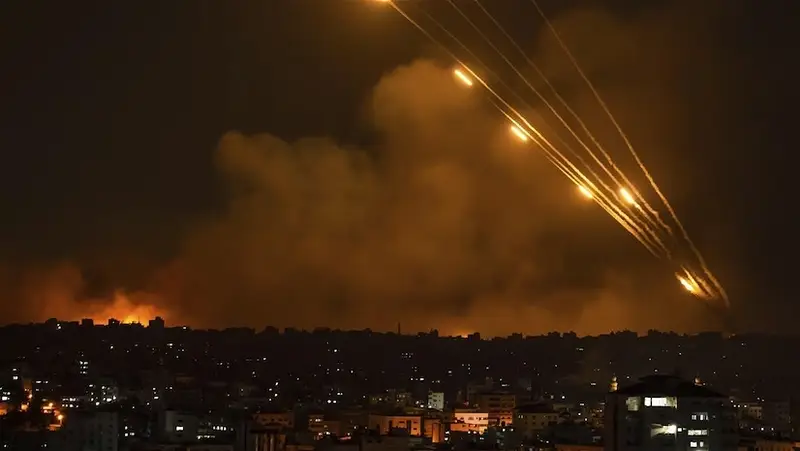Countries around the world yesterday condemned Iran’s strikes on Israel, warning that the attack could further destabilise the Middle East.
This is as Israel is debating Iran’s attack response at the Knesset with the US and her allies scrambling to stop a slide into an all-out war.
Israeli officials say that Prime Minister Benjamin Netanyahu’s war cabinet favours a retaliation against Iran for its mass drone and missile attack, but is divided over the timing and scale of any such response, according to Israeli media reports.
The five-member cabinet, in which Netanyahu, Defence Minister Yoav Gallant and Cabinet Minister Benny Gantz have decision-making powers, met yesterday and was expected to convene again for further discussions.
Gantz and his political ally Gadi Eisenkot, an observer in the war cabinet, suggested retaliating, even during Iran’s attack.
Reports have it that Gallant, Army Chief Herzi Halevi and others opposed this idea, in part because the Israeli air force was already deployed to intercept the incoming drones and missiles.
Benny Gantz, the opposition leader, who joined the war cabinet after the Hamas attacks of 7 October, emphasised the cohesion of Israel and its western allies.
“Israel against Iran, the world against Iran. This is the result. That is a strategic achievement which we must leverage for Israel’s security.”
The words Mr Gantz used did not rule out another attack on an Iranian target, or a first overt Israeli strike inside Iran (Israel has hit Iran’s nuclear programme repeatedly, with cyber-attacks and the assassination of officials and scientists).
But there might be time for the diplomatic response President Joe Biden wants from the meeting he has called of the G7, the richest western countries.
This most recent escalation of the war that has spread across the Middle East since Hamas attacked Israel began two weeks ago, when Israel attacked Iran’s embassy compound in Damascus. The air strike, on 1 April, killed a senior general, his number two and other aides.
Iran launched its first-ever direct assault on Israeli territory late Saturday in retaliation for a deadly strike by Israel on Tehran’s consulate in Damascus on April 1.
Experts say Israel was able to neutralise most of the attacking missiles and drones — but that Iran had deliberately sought to keep the intensity of the attack below a presumed threshold for inevitable Israeli retaliation.
Iran’s foreign minister said it had announced Saturday’s retaliatory attack in advance, which it called “limited, minimal”, and “aimed at punishing the Israeli regime”.
Several experts said this shows Iran was seeking a show of strength with its attack, but without sparking an escalation.
Julien Barnes-Dacey, Middle East programme director at the European Council on Foreign Relations, said on X that Iran’s “weak” drone showing was meant to signal that Tehran wanted to “avoid a wider war”.
US political scientist Ian Bremmer called the situation “stressful”, but he also suggested it was “best to breathe a bit”.
UN Secretary-General Antonio Guterres condemned “the serious escalation”.
“I am deeply alarmed about the very real danger of a devastating region-wide escalation,” he added, calling on parties to “avoid any action that could lead to major military confrontations on multiple fronts in the Middle East”.
President of the European Commission Ursula von der Leyen called on Iran to “immediately cease” attacks, saying in a message on X, formerly Twitter, that “all actors must now refrain from further escalation and work to restore stability in the region”.
Foreign policy chief Josep Borrell said the bloc “condemns in the strongest terms” the attack, calling it “an unprecedented escalation and a threat to regional security.”
The G7 group expressed its “full solidarity and support to Israel and its people and reaffirm our commitment towards its security”, the group said in a statement following video talks.
“We demand that Iran and its proxies cease their attacks, and we stand ready to take further measures now and in response to further destabilising initiatives”, it said.





